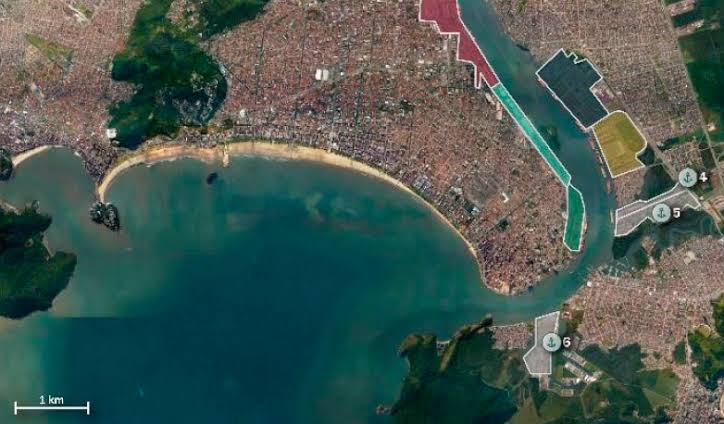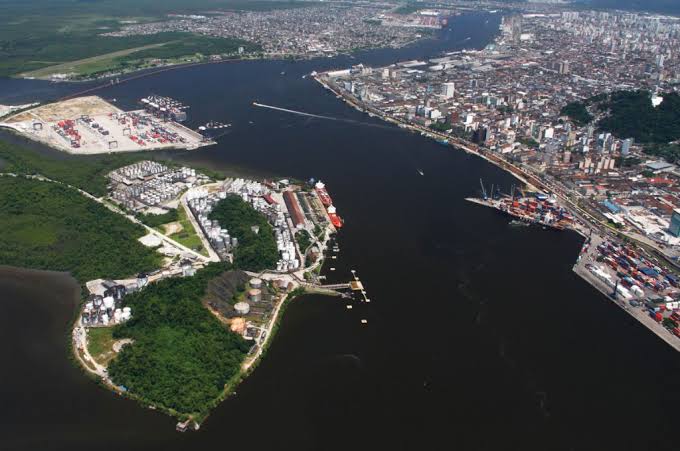SÃO PAULO, BRAZIL – Involved in a series of scandals in recent years, Latin America’s largest port complex is undergoing restructuring with a view to privatization.
Since the beginning of the year, Companhia Docas do Estado de São Paulo (São Paulo State’s Dock Company – CODESP), now called the Santos Port Authority (SPA), has implemented several changes to reduce costs and increase revenues. The initiatives range from cutting staff, limiting some benefits and reviewing port contracts.

The measures should help the port authority reverse the loss of R$468 million (US$117 million) last year and raise visibility among investors, particularly foreign operators. By October, the administrator of the complex had reported a profit of R$118 million.
“We came here with the mission of preparing the company for privatization. To do so, we had to take a management step in the company,” says Casemiro Tércio Carvalho, president of the SPA. The government should hire the National Bank of Economic and Social Development (BNDES) to conduct the studies and design the company’s privatization.
At the head of the port’s administration since February, he says he has focused the initial work on reducing costs. This entailed even the reduction of employees’ cell phones. Now the phones are only available in remote areas for use in the operation. There were also staff layoffs, such as kitchen staff and drivers, reduction in the fleet of vehicles, review of third-party contracts and cancellation of some services.
Other changes included allocating all the directors to a single area. Before each one had an independent office. Now they are all located in the same space without the need to have a printer for each one, says Carvalho.
The company is expected to achieve savings of 20 percent this year, which should add up to R$130 million. Another important initiative was to transfer the management of the Public Fishing Terminal in Laguna (SC) to local authorities. Each year, the SPA spent some R$6 million on maintaining the terminal – located approximately 800 kilometers from Santos.
New money
In terms of revenue, some contracts have been revised, with readjustments of up to 75 percent. The port authority has signed transitional contracts in areas with expired leases. So far, five transitional contracts have been signed.

Carvalho also states that there has been operational improvement work to unlock the port at the berthing of ships anywhere on the public dock – which was not allowed before. This enabled 46 more ships to enter Santos, the executive said. “The effect of that is that we started capturing cargo that had left Santos for other ports.”
For 2020, plans should initiate a Voluntary Disengagement Incentive Program (VDP), approved by the Ministry of Economy and the category’s union. The goal is to reach about 500 employees, with more than 35 years of service, and retirees. The SPA currently has 1,300 direct and 900 indirect employees.
Operations
The work on the operational front is also extensive. The company is working together with the government to model the next leases in the Port of Santos, with the goal of creating cargo handling clusters. This should occur in a region called Macuco, which includes the Libra Terminal area – which no longer operates in Santos since Libra went into judicial reorganization mid-year.

In this area, which already handles pulp, the plan is to auction two terminals in 2020 and 2021 to transport the product. This will open a corridor with capacity for 12 million tons of pulp – one of the largest in the world. In the same region, a terminal for liquid bulk cargo will also be auctioned.
Another area will be auctioned in Alemoa, another region of Santos. Here, a 480,000 square meter terminal for liquid bulk cargo is expected to be auctioned. Today, part of this land is operated by Transpetro. The bidding is expected to come out in 2021.
Among the operators in Santos, who prefer to remain anonymous, Carvalho’s work is being well appraised for the time being. “The team is well prepared and are executing a good project,” said the executive of a terminal, who preferred to remain anonymous.

